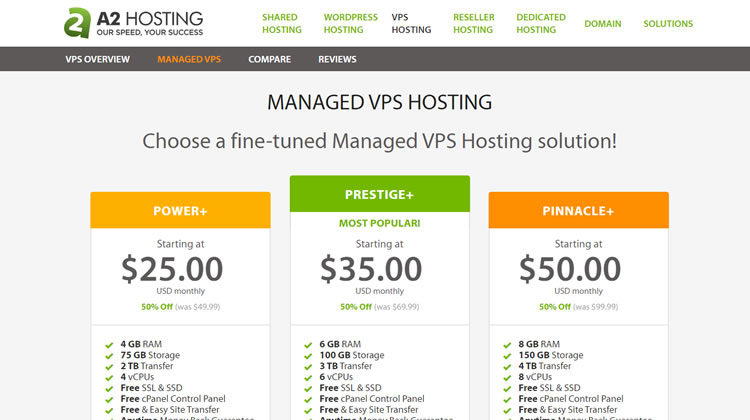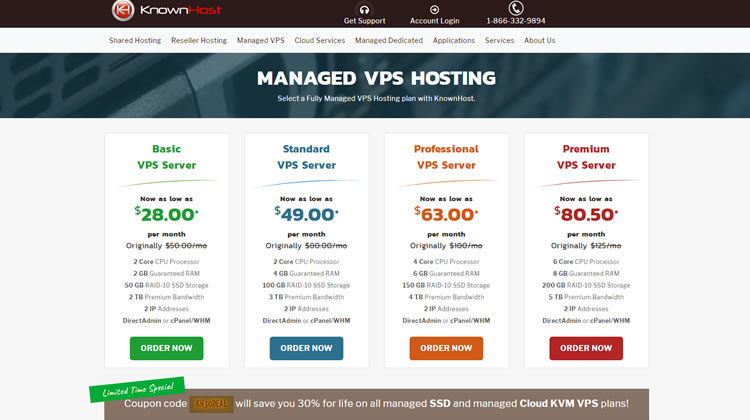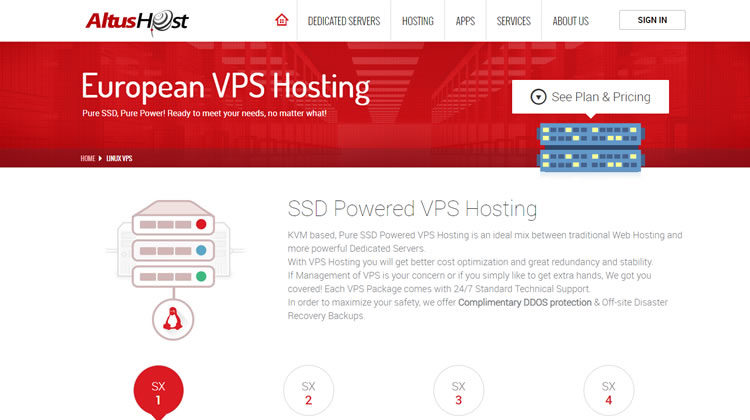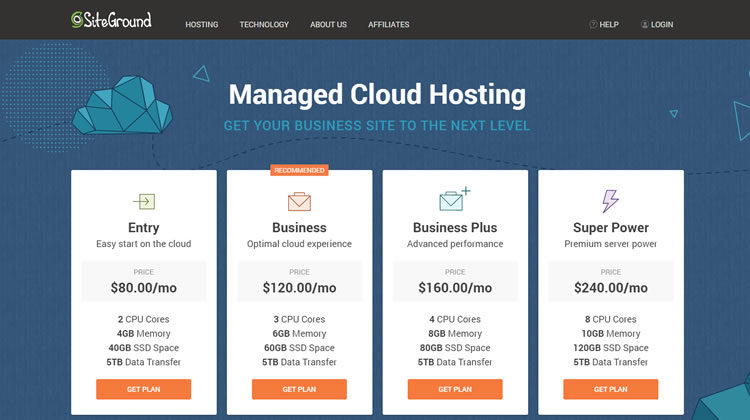VPS Hosting A-to-Z Guide: How It Works, How to Choose & Best VPS Deals
- What is virtual private server (VPS) hosting
- Shared vs VPS vs dedicated hosting
- When is the right time to switch to VPS
- Tips on selecting the right VPS host
- Best VPS hosting providers
- Where to get free VPS hosting
- Other important things & wrap Up
WHSR receive referral fees from some of the companies mentioned in this article. It takes lots of effort and money to create useful content like this – your support is highly appreciated.
What Is Virtual Private Server (VPS)
VPS stands for Virtual Private Server. A VPS hosting is a server, with its own copy of operating system and allocated server resources, within a bigger server.
How does VPS hosting work?
As the name implies, the entire aspect of VPS hosting is virtual. Virtualization technology is the means in which one powerful service is divided into multiple virtual servers. You can take it like you have a one piece of physical hardware that functions as separate servers.
Even though the physical server is shared, there is the element of privacy with services. The virtual server you are using will be reserved only for you. You won’t have to share your CPU, RAM or any other data.
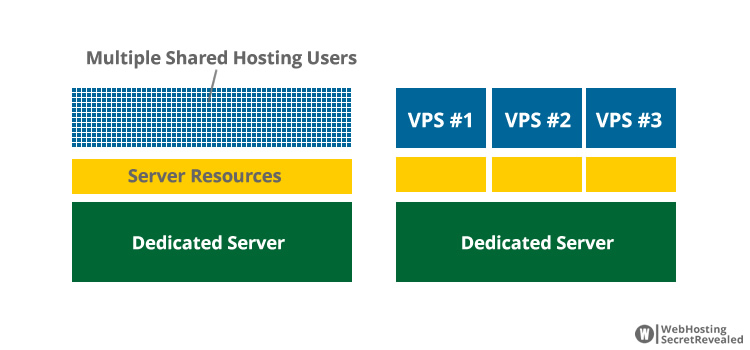
From a user point of view, a VPS host means:
-
- Guaranteed performance – as you’ll get your own dedicated resources (CPU, RAM, storage, bandwidth, etc);
- Better site security – your websites will be hosted in an isolated environment, what happen to your neighbor will not affect you; and
- Complete server root access – it’s like hosting on a dedicated hosting.
Advantages of VPS hosting
VPS hosting is the perfect balance of price, performance, security, affordability, and privacy. Some of the amazing benefits you will get by using the services are;
- Shared cost of services
- Quick server setup
- Better server access with more control
- Private environment in which VPS server works
- Similar level of services as with a dedicated server
Shared vs VPS vs Dedicated Web Hosting
Some might get a little confused because of the multitude of choices when it comes to shared, dedicated and VPS hosting. Let’s take a closer look and perhaps, do a little comparison for better understanding.
Shared Hosting

Shared hosting is like you are living in a room with a lot of friends. It means you must fit in the same room and you must split the cost of several things because it is affordable and cheap. However, several individuals are sharing the same space, it means everyone needs to live within a space with restricted resources among them. You will have to use the same things (that sounds a little unhygienic).
There are many website owners who prefer to use shared hosting services for the simple reason that it is easy to manage and affordable. Hosting service providers will take care of the server maintenance, so the web owners only need to focus on their site.
However, shared resources sometimes can have unforeseen circumstances, such as one website getting overloaded and hogging all resources on that server. This will affect the performance of other websites hosted together with it, until the hosting company resolves the issue.
VPS Hosting

VPS hosting is like you are living in an apartment complex. It means that other people are living in the same building, but you have your own secure apartment. You will get more room and restrictions will be fewer as compared to living in a dorm. It also means that if your neighbour is misbehaving, it is the problem of owner of building, not yours.
Similarly, in the case of VPS, there are several users that are using the same server but they are isolated from each other. It means that no one will be affected by how much resources another is using. You will get the speed and security that you need without compromise. It is almost a perfect scenario because you will get the benefits of a private server with shared cost of services.
Dedicated Hosting

Dedicated server hosting is like being the owner of a house. You are free to move anywhere within your property that you like. however, you will have to pay for the mortgage and bills that can be expensive.
Similarly, in a real dedicated server, you will pay for the entire server that is not shared with anyone else. You will get complete control over all services. Unfortunately, it is also the most expensive hosting option and needs some technical expertise to manage. It is commonly used by those who have websites with specific scenarios, most commonly extremely high traffic and tight security requirements.
VPS Host: When is the right time to switch?
It’s time to upgrade to VPS when…
1. You need speed
When you add more content to your website, its speed will likely slow down after some time. This is especially true for websites that rely on database-intensive operations. If you notice increasingly long process times, it’s time to contemplate an upgrade in plan.
Further, most websites will see increased traffic over time. Popular sites mean much higher traffic rates, which is fantastic for you. However, it means that your existing plans will likely not be able to manage that volume of traffic. Upgrading to VPS hosting is the next logical step for you at this point.
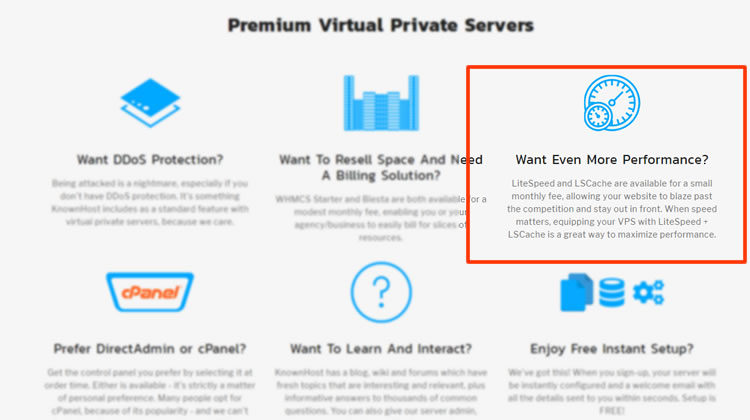
2. Lack of resources
Continuously getting 503-server errors most probably means that your services are not available to your visitors and customers as well. It means that you do not have enough memory on your server (again, likely due to your neighbours hogging the resources). It’s time to move to VPS hosting.
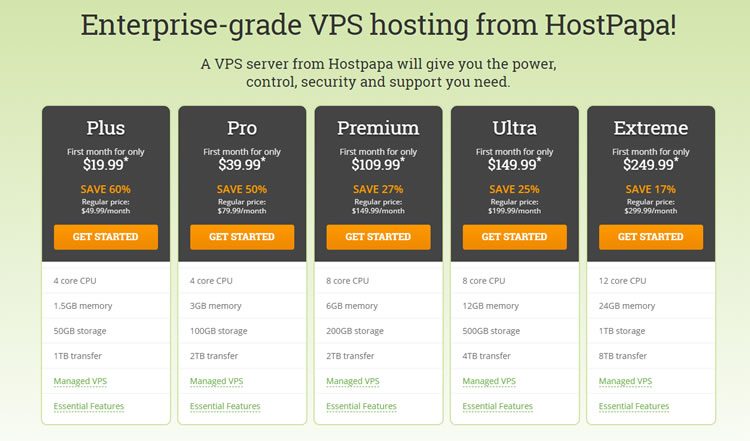
3. Increased security concerns
If you’ve become unlucky enough to have gotten onto a server which is facing multiple attacks against another site hosted there, things can be tough. Under this scenario, you’ll have to rely on the good graces of your host to manage the situation, or alternatively, switch to VPS to get around it.
4. Special operating system (OS)
With full root access (that usually comes with unmanaged VPS hosting plans), you are able to install and customize any software that you need to optimize your hosting experience. This is flexibility is especially valuable when you need to install a custom operating system.
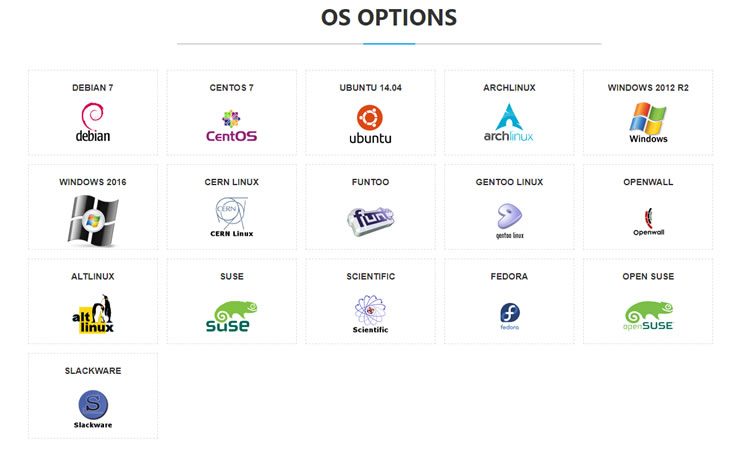
Tips on Selecting the Best VPS Hosting Provider
There are thousands of service providers available online – Choosing the best one can be tough.
Let me share with you some of the things you must consider before making a decision and spending that extra money.
Consideration factor #1: Live customer support
I’ve always stood firm on the point that customer support is a make or break deal with any sort of service provider. Your VPS host needs to at least some form of all-day, everyday support. It can be via live chat or a ticketing system, but customers always need to feel as if the host has their back.
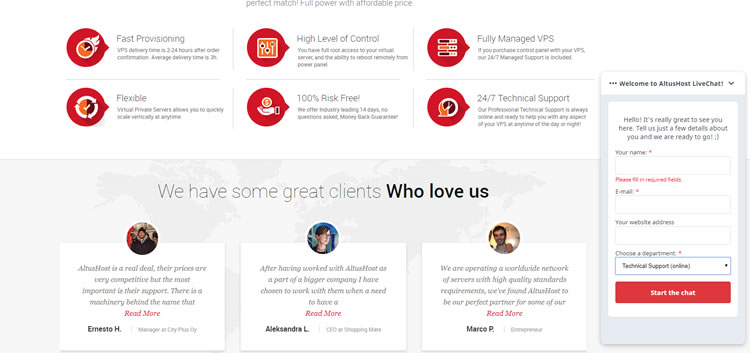
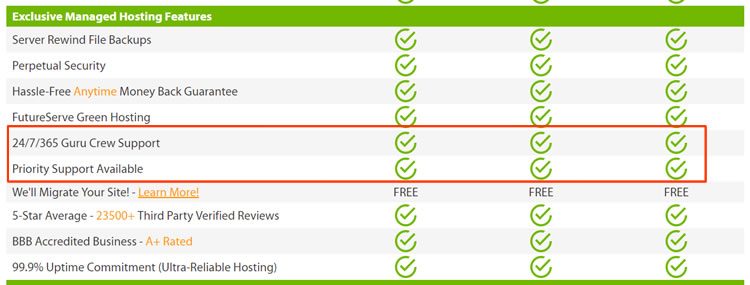
Consideration factor #2: Cost
Keep firmly in your mind the sort of assets that you require to serve your site(s) when seeking a host. Cost in a VPS is important, but not as key as you might think. VPS resource availability is scalable, so the cost that needs to be looked at is comparable cost from one host to the next. Also – as cPanel revised their pricing model recently, web hosting companies across the board will have to pass those costs on to users sooner or later. You will need to consider the cost of control panel when selecting a VPS plan. Companies like ScalaHosting has developed their own control panel to mitigate this issue – so their users would have little issues with the price hike.
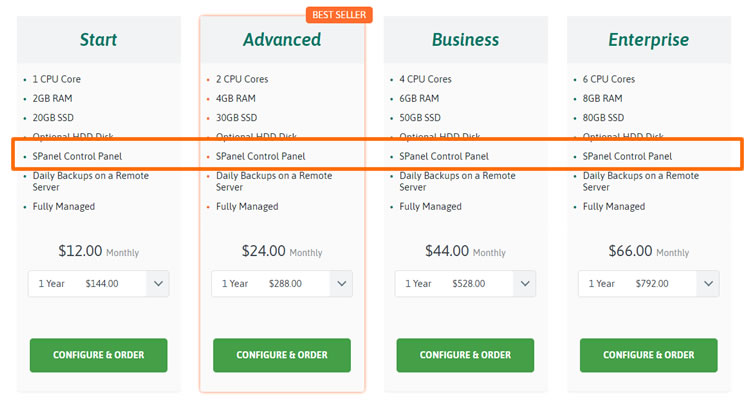
VPS pricing: How much to pay?
| VPS Host | CPU Cores | Memory | Storage | Dedicated IP | Control Panel | Price* |
|---|---|---|---|---|---|---|
| AltusHost | 2 | 4 GB | 80 GB | CentOS | €39.95/mo | |
| BlueHost | 2 | 4 GB | 60 GB | 2 | cPanel/WHM | $24.99/mo** |
| DreamHost | 2 | 4 GB | 120 GB | DreamHost CP | $27.50/mo | |
| JujuHost | 4 | 4 GB | 125 GB | 2 | cPanel Solo | $78.99/mo |
| InMotion | 1 | 6 GB | 150 GB | 4 | cPanel/WHM | $29.99/mo* |
| Interserver | 4 | 8 GB | 120 GB | Webuzo | $24.00/mo | |
| KnownHost | 2 | 2 GB | 50 GB | 2 | Direct Admin | $28.00/mo |
| Scala Hosting | 1 | 2 GB | 20 GB | 1 | SPanel | $12.00/mo |
** / * Introductory price. InMotion VPS plan renews at $99.99/mo; BlueHoust VPS plan renews at $59.99/mo.
Consideration factor #3: Reliability and hosting performance
Check how much uptime your host guarantees. Uptime in a shared services environment is often laxer than should be expected in a VPS environment.
You’re paying more, so there SHOULD be a minimum uptime guarantee and better server speed. Look for a host that offers 99.5% at a very minimum, although ideally, I’d rather go with someone who offers 99.9%. Search through some reviews as there are many who have put this to the test. For example, any of WHSR’s many web host reviews include an uptime record as one of our key tests.
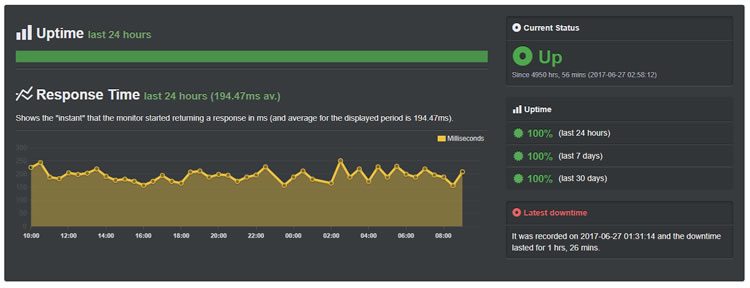
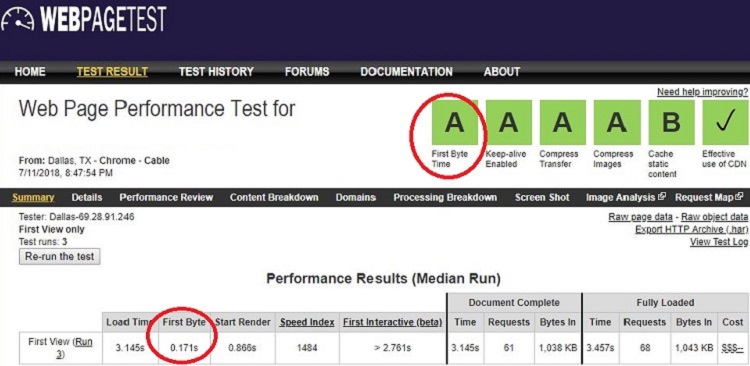
Best VPS Hosting Providers to Consider
1- InMotion Hosting
Quick review: InMotion Hosting is highly recommended due to two reasons – one, strong server performance data (>99.95% uptime, TTFB <450ms); and two, solid customer service. I personally pay them hundreds of dollars every year to host this site you are reading.
Learn more in our InMotion Hosting review.
Notable VPS features
- cPanel license is free with enterprise-grade CentOS
- The cloud infrastructure will power Real-time redundancy
- Server management is free for updates and patches
- SSL and SSDs certificate is free for secure and fast hosting
2- A2 Hosting
Quick review: The best thing about A2 Hosting is speed. By introducing SSD storage, Railgun Optimizer, and pre-configured server caching to its shared hosting users, A2 is raising the speed standard of the entire hosting industry. By all accounts, A2 Hosting is definitely worth signing up if you don’t have a web host.
Learn more in our A2 Hosting Review.
Notable VPS features
- cPanel available
- Choose your Linux OS
- Root access available
- SSD Storage
3. KnownHost
KnownHost managed VPS hosting service is reliable, reasonable priced, and relatively simple to setup. All VPS hosting plans come with full SSD storage, built-in backups and 2 dedicated IP addresses – which make them a perfect choice for businesses who are looking for a worry-free VPS hosting solution.
Learn more about KnownHost performance and features at HostScore.
Notable VPS features
- cPanel/WHM or Direct Admin
- Built-in backup and speed optimization
- Root access available
- 2 dedicated IP address included
4. HostPapa
Quick review: We like HostPapa for its low signup price and feature-rich shared hosting plans. The expensive renewal price and below 99.9% uptime record is an issue for now. If for some reason you want your website to be hosted in Canada, then HostPapa is definitely one of the best choices.
Learn more in our HostPapa review.
Notable VPS features
- cPanel available
- SolusVM VPS panel
- Root access available
- Full SSD Storage
5. AltusHost
Quick review: AltusHost is a well-known premium hosting provider based in Netherlands. The company provides rock-solid customer support and offer three different server locations in Europe (Bulgaria, Netherlands, and Sweeden). We think AltusHost may be the right call for small businesses and individual bloggers who want a reliable EU-based hosting solution.
Learn more in our AltusHost review.
Notable VPS features
- 2 to 8 GB RAM with full server root control.
- Fast delivery time – provisioning in 2 – 24 hours.
- DDoS (10 Gbit/s) protection included.
6. SiteGround
Quick review: SiteGround is a solid hosting company with innovative server features and top class live chat support. Their price is a little steep at renewal but you’ll get what you paid for. We think SiteGround is suitable for both new and experienced users who want a worry-free hosting solution.
Learn more in our SiteGround review.
Notable VPS features
- Scalable resources
- 24/7 VIP support
- Free CDN
- Multiple locations available
Free VPS Hosting: Where to Find Them?
Here are some free VPS hosting we found online.
| Free VPS Providers | Storage | Memory | Credit Card? | Support? |
|---|---|---|---|---|
| 5 Jelly | 20 GB | 1 GB | ||
| Ohosti | 25 GB | 512 MB | ||
| InstaFree | 5 GB | 256 MB | ||
| Guhat | 15 GB | 512 MB |
Free VPS hosting is not as powerful and robust as the paid one.
Security is usually a major issue when you are using a free platform. Imagine hosting your sites alongside with spammy / outdated / unmanaged sites – you never know when these neighbors are going to cause troubles (even though you are on VPS).
So are customer support and performance. You can’t ask for high level support and topnotch server performance when you are not paying any amount of money, right?
But then again, these VPS plans are FREE. They fit the needs of certain web owners – especially for users who are developing a web application or users who want a taste of VPS hosting before going for the paid options.
Other Important Things to Know About VPS Hosting
1- Managed vs Unmanaged VPS Hosting

If you’ve ever used a computer on your own (yes, this might sound strange, but there’s a reason for it) then you’ll probably know what it’s like to use unmanaged VPS hosting.
In both situations, you’re responsible for the setup and maintenance of all programs which run on the system.
Unmanaged VPS
With an Unmanaged VPS, your hosting provider has only two responsibilities – making sure your VPS is running and that it’s connected to the network. As you can imagine, this may take a little technical expertise on your part to handle.
Managed VPS
In a Managed VPS environment, you can sit back, relax and let your host know whatever you’d like done. There are no security issues to be concerned about, not function-specific tasks you’ll need to handle. Your host will manage everything for you and solve any issues that crop up.
2- VPN vs VPS: What’s the Difference?
To be honest, there is not much of a similarity.
What is a VPN?
A VPN is a private network (ie. ExpressVPN and NordVPN) which most people use to keep secure and private on the Internet.
What is a VPS?
A VPS on the other hand is a virtual serve you can use like a dedicated server to host your website or manage other web-related tasks, such as setting up Cloud Storage, hosting email or such. The two are similar in acronym only.
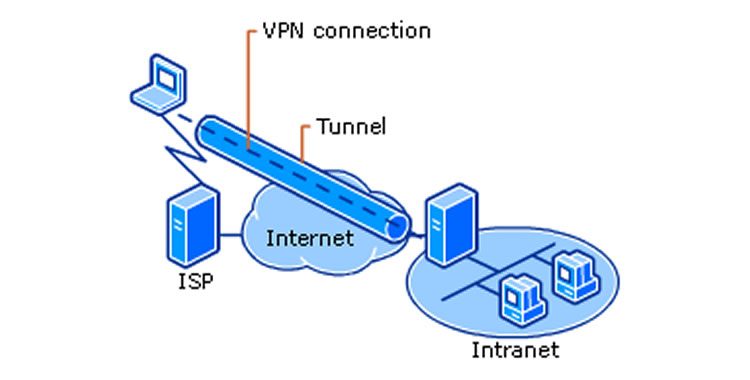
Here comes the but – I include this segment because you can use a VPN to connect to a VPS server and manage it. The VPN will keep your connection private and untraceable, so you can sign in to the VPS without anybody knowing otherwise.
Some VPNs offer fixed IP addresses, and that gives many users an advantage since almost all ISPs make use of dynamic IPs for their customers. By using a VPN with a fixed IP, you can choose to only whitelist your IP in managing the VPS, making it much more secure.
Also – check out this list of best VPN services.
The Bottom Line
The average VPS is more expensive than shared hosting, but this is not always true. When considering whether you need to move to a VPS host, I would rather you focus on whether you’re able to manage a VPS account.
True, there are some that come managed, but the level of technical knowledge needed is different from regular shared hosting. It’s not insurmountable, but your key business is in your website. Do you want to spend the extra time learning to manage your VPS account?
The flip side is scalability. Once you’ve gotten the hang of it, users of VPS hosting have an easier time in two ways. A) It’s easier to scale up and there are multiple tranches, so your cost of running a website increase slowly and B) it’ll give you a technical edge when your site has grown so large you need to move to a dedicated server.
We have also published a number of actionable guide and helpful hosting reviews for those who are searching for a web host.
- Full list of hosting providers we reviewed
- Guide: Problems & solutions with cheap web hosting
- Guide: Switching from HTTP to HTTPS (SSL)
- How to host your business email accounts
- How to purchase a new or existing domain name
- How to transfer a web host with no down time
- List of best hosting services we recommend

